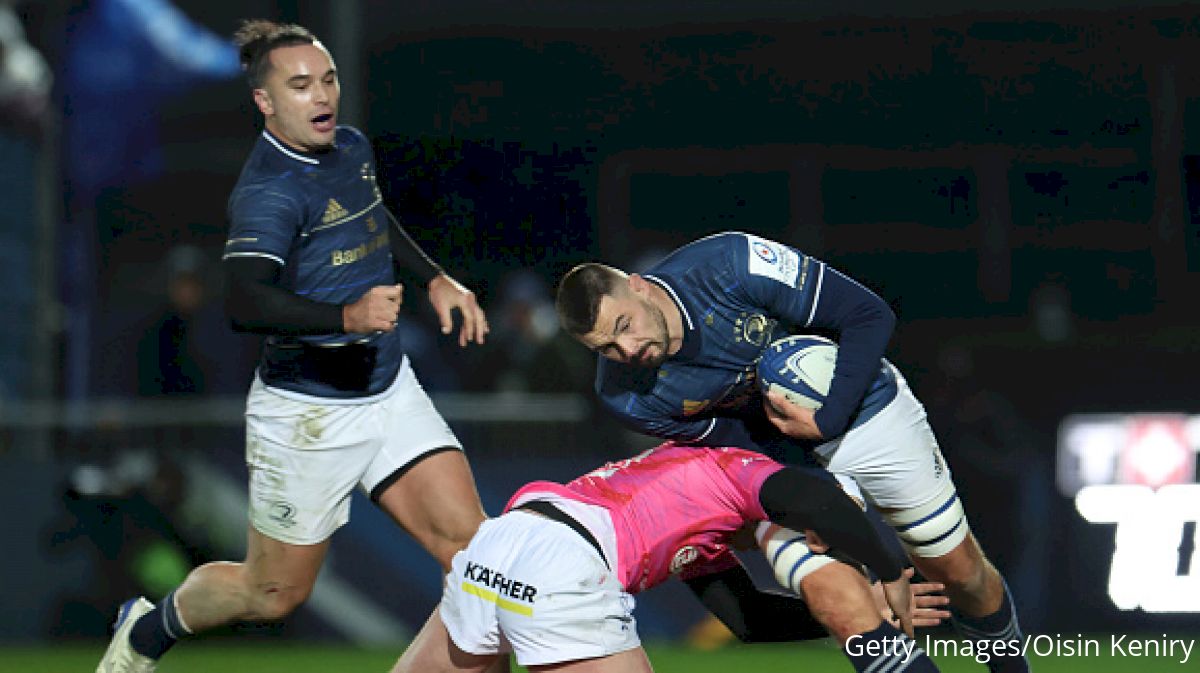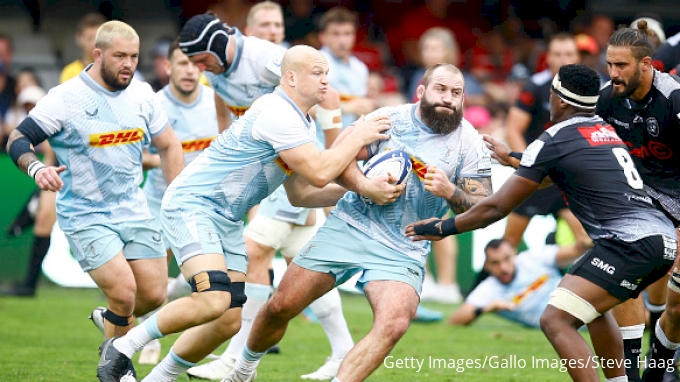Future Of European Club Rugby In Murky Waters
Future Of European Club Rugby In Murky Waters
An altogether familiar sight played out, as a second-string Gloucester squad traveled to Ireland to lock horns with Leinster, one of club rugby's goliaths.

On Friday, night an altogether familiar sight played out, as a second-string Gloucester squad traveled to Ireland to lock horns with Leinster, one of club rugby's goliaths.
Right from the off, the question was not who would win, but rather how big the deficit would be for the English side.
On the face of it, it's easy to pin the blame on Gloucester's head coach George Skivington for his team selection. He chose to be without Santiago Carreras, Freddie Clarke, Ruan Ackermann and captain Lewis Ludlow, to name but a few.
Had these stars been in the mix, the Cherry and Whites would have been more than a match for Leinster but, as Skivington explained in the build-up, delayed changes to the Premiership fixture list made this an impossible option.
The financial plight of Wasps and Worcester Warriors, which forced them both out of the English topflight, meant the Christmas schedule had to be rejigged, ultimately resulting in Gloucester losing its bye week.
To give his players sufficient time off, Skivington made 13 changes to the side that beat Bordeaux a week earlier, and the outcome was brutal.
Leinster simply was too good, running out 57-0 winners at the RDS Arena.
The Irish province unquestionably is a fierce challenger to any team, but even for the four-time Champions Cup winners, their nine-try annihilation was rather flattering.
❌ 𝙏𝙝𝙚 𝙨𝙩𝙚𝙖𝙡 𝙗𝙮 𝘾𝙖𝙚𝙡𝙖𝙣
— Leinster Rugby (@leinsterrugby) December 19, 2022
🏃♂️ 𝙏𝙝𝙚 𝙧𝙪𝙣 𝙗𝙮 𝙇𝙤𝙬𝙚𝙮
Friday's Moment of the Match, delivered by @JustEatIE was the work of Caelan Doris and James Lowe that resulted in Lowe's first try of the night#BringItHome #FromTheGroundUp #LEIvGLO pic.twitter.com/zOsx9IwFx7
Such one-sided score lines are a bad look for the Champions Cup that's now becoming a worrying trend in the group stage of the competition. Last year, Leinster trounced Montpellier 89-7 and yet, the French side still qualified for the knockouts. Therein lies the primary issue with the newly configured pool stage.
As it stands, there are two pools, each containing 12 teams. Of those teams, eight will qualify for the relatively new last-16 stage of the tournament. The added dimension of another knockout game is a tantalizing offering.
Last season, it was played across two legs, but that structure has been scrapped, though it did provide spectacle and jeopardy in equal measure when it briefly came into force.
Before the complete restructuring of the Champions Cup, teams would qualify from their group and head straight into the quarterfinals. The payoff for adding a last-16 was that more teams could progress from their groups. This, in turn, limits the value of a win in the group stage.
For the most part, two wins likely will be enough to get you through, and that's why Skivington, with a European win already under his belt, decided to rest his key starters in Round 2.
Fixing this dilemma is not easy, but it must be handled, or else the spectacle of European rugby will fail to attract sufficient fan attention until the knockouts begin. This trend already has been evidenced, as the Champions Cup is played out to the tune of half-filled stadiums.
The curtain raising clash between London Irish and Montpellier should have been a moment to savor, and while the rugby lived up to the hype, it was sad to see large swathes of empty seats at the Gtech Community Stadium.
There already are plenty of murmurings about the future appeal of European club rugby, precisely because the crowds willing to attend fixtures seem to be dwindling. When certain pool games don't really hold sway in the overall standings, the appeal is just not as vibrant.
The latest addition of South African teams to the tournament makes it even harder to encourage supporters to trek to watch their team live, especially for an away day.
Joe Marler, speaking after Harlequins battled past Bath in the Premiership a few weeks prior to the European window, made light of the fact that he would be traveling to South Africa to face the Sharks, in a competition branded as the European Champions Cup.

The jibe was more comical than meaningful, but it does point toward the tough choices fans now face if they want to watch their team play in the Champions Cup. They are the lifeblood of rugby, and without them, the professional game cannot function.
Getting them onside is integral but becomes a lot harder when second-string squads are gracing the field.
Written by Stefan Frost